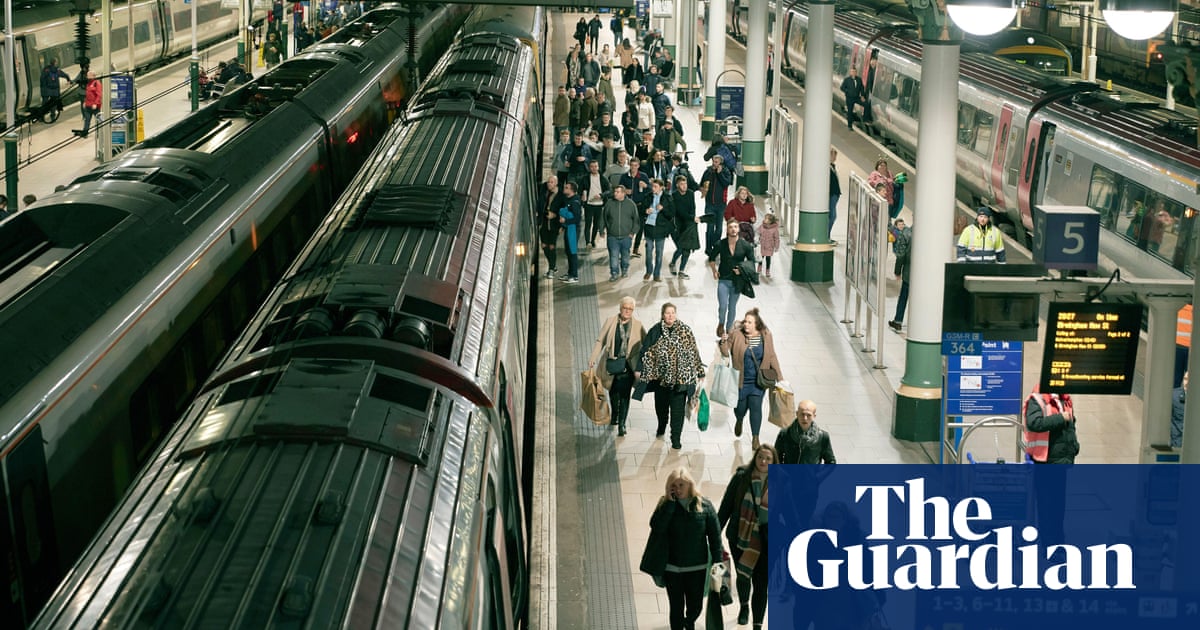
Rail fares in England are to rise by 3.8% in March, the government has confirmed, in line with July’s RPI inflation rate and the biggest increase in nine years.
The latest increase – revealed in the Guardian after a leak this month – is less than some feared after fares went up above the RPI inflation rate in March of this year.
However, with current inflation rates running much higher, and many former season ticket-holders in the commuter belt working from home, the fare rise is likely to be met with less passenger outcry than in previous years.
Industry leaders have argued for a freeze to tempt passengers back to the railway, with numbers again declining with the Omicron coronavirus variant. Numbers had peaked at about 70% of pre-pandemic levels in November.
However, the Treasury is keen to reduce subsidy, with the government having invested more than £14bn to keep services running during the pandemic, and said the fare rise would help meet some of these costs.
The rail minister, Chris Heaton-Harris, said: “Capping rail fares in line with inflation while tying it to the July RPI strikes a fair balance, ensuring we can continue to invest records amounts into a more modern, reliable railway, ease the burden on taxpayers and protect passengers from the highest RPI in years.”
The increase officially applies to regulated fares – such as season tickets, long-distance returns and anytime urban fares – in England alone, but is likely to be reflected throughout UK rail.
The government said the flexible season tickets it launched this year, whose savings were widely regarded as insufficient to attract many passengers, had now been purchased by more than 100,000 people, who could still save by travelling two or three days a week.
Labour, however, said that it was “a nightmare before Christmas” for rail commuters, who would see average fares rise to 48.9% more than they were in 2010. Shadow transport secretary Louise Haigh said: “Families already facing soaring taxes and bills will now be clobbered with an eye-watering rise in the cost of the daily commute. Many will wonder what planet ministers are on if they think people can afford this?”
The rail industry welcomed the decision not to raise fares above RPI as some had feared. Andy Bagnall, the director general of the Rail Delivery Group, said: “It is important that fares are set at a level that will encourage more people to travel by train in the future, helping to support a clean and fair recovery from the pandemic.”
But campaigners and unions criticised the rise, contrasting it with policies on road and air transport. Paul Tuohy, chief executive of Campaign for Better Transport, said: “Rail fares should have been frozen to match the fuel duty freeze for car drivers. If the government is serious about shrinking transport’s carbon footprint it should make rail the affordable choice. Instead, it is asking some commuters to pay hundreds of pounds more for their season tickets, which risks driving people off rail and onto roads instead.”
Rail fares have risen at or above the higher rate of RPI inflation for more than a decade, while fuel duty on petrol and diesel for motorists has been frozen in absolute terms at 57.9p per litre.
News of the fare rise comes as rail unions gear up for industrial action, with a wave of job cuts expected as train operators and Network Rail have been told to find savings of £1.5bn a year.
Manuel Cortes, TSSA general secretary, said: “Fares rises are staggeringly counter-productive. Rail should be incentivised and the government should look at free travel – as many other countries do – as a positive way to change travel behaviour and cut emissions.”












